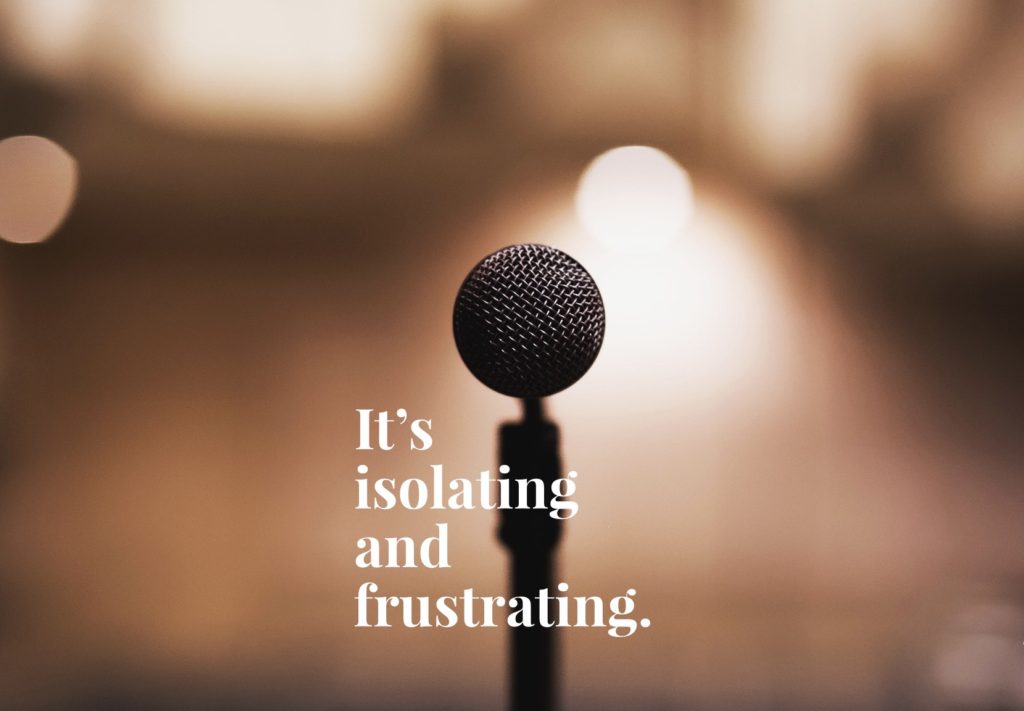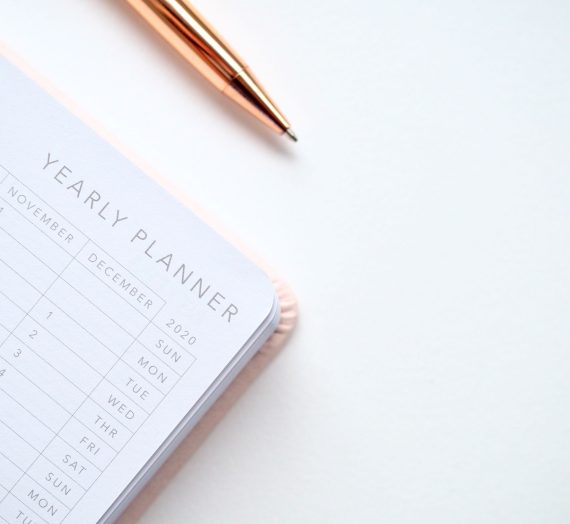“Don’t sweat it,” they tell you. “You’ll be great. I know you can do it!”
Oh, if only it were that simple.
The problem is that the meaningful encouragement of others often gets drowned out of our minds and hearts by the much louder, pessimistic chatter that many of us inflict upon ourselves. The “what-ifs” and doubts creep in. And somehow those messages are much louder.

What if we will be fine? And what if, as musicians, we could forgive ourselves our imperfections? What if those imperfections were actually endearing attributes that made our performances more engaging, more genuine? More real.
Here’s the thing.
I’ve heard all the sound reasoning, read all the books, watched all the videos, attended countless lectures, and talked with umpteen colleagues and friends – all in hopes of uncovering the secret; the rock solid solution of overcoming performance anxiety.
And everyone has their philosophies, things that truly work…
…for them.
The truth is that when you struggle with stage fright and you are a musician, it is such a serious obstacle, it makes you doubt your very decision to pick up an instrument or engage in music in the first place.

I know this first hand. As a classical flutist, I struggled terribly with performance anxiety. Still do on occasion. In graduate school solo performances, my mouth would get so dry from fear. At one point, I actually had to STOP in the middle of the demanding Ibert Concerto. Thankfully, it was in the safety of a studio class and not in front of a full orchestra. But still! Those experiences never leave you. In fact, they can collect over time and become a list of “defeats” that prevent you from wanting to take the stage.
Or… they can be the battle scars
…that remind you you’re not perfect, to never give up, and to encourage everyone along the way who is struggling.
The science behind stage fright is simple. When a person experiences stress (of any kind), the part of the brain that deals with emotional processing sends an alert to the hypothalamus. This area of the brain communicates with the rest of the body (through the nervous system) telling you either to fight or flee! Ha! So many times, fleeing a concert felt like a GREAT option for me.
In fact, many times, I would run the hall or stairs in a dress and heels before a recital to compensate for my body’s response to the stress of a performance. Maybe I should have run track instead of play the flute. Maybe you can relate?
After years of wrestling with these feelings, praying for answers, and watching my students struggle, I began to see a few things with new eyes.
For some, the feelings of stage fright are almost always there. No matter how you push them down, they pop back up. I used to feel helpless against them and now, in anticipating and understanding them – and myself, the fear loses its grip on me. And on the rare time that the anxiety is not there, I feel such freedom! So, is it possible to be an OVERCOMER of your performance fears?

Here are some thoughts that might help as you work through your own fears and begin to enjoy music again for the gift it is.
1. Preparation
This may seem like a no-brainer, but you must work your hardest with the intention of being fully prepared. If not, your conscience will certainly find you out! There is no substitute for committing the proper time to quality practice and study of the music. Also, there must be plenty of rehearsal to fine tune details and get beyond “the basics” to make real music! That is where freedom of expression is found, which can really produce beautiful moments – for you and your listeners. So, find the time, sketch goals, and do your best to meet them, so your mind can be free of doubting your preparedness.
2. Consider Others
The common thing to do is to compare yourself to others and ponder what they are thinking. Many times performance anxiety can be a result of over-focus on yourself. Something really special happens when you step back and view the people in your life as a gift. Look around and begin to see those around you who will inspire, others who will listen, teach and build up, and still others to collaborate with. The ears and eyes of others are crucial for our growth as musicians!
Performing with friends is the best. Even in a small recital or chamber music situation, there is such an opportunity to discover new joy in the music. In listening and learning to the parts of your colleagues, you’ll begin to discover things about the harmonies you didn’t know existed. You will certainly appreciate music in new ways. I have discovered that if your brain is packed with great musical details and the intricate relationships between parts, there is a whole lot less brain space to worry!
3. Embrace Imperfection
Yep, you heard me right. They say that practice makes perfect… but why not practice for perfection and then allow yourself to be a real human being, after all that hard work is done? Expecting absolute technical perfection of yourself all the time is unkind. If you have done the hard work and still make a mistake (or a few), you will most definitely learn from it. Every single imperfection teaches you something, creates an opportunity for growth, and gives you insight when teaching others.
The idea of embracing imperfection comes with time though and maybe a pinch of life experience. When you’ve made enough mistakes, you understand that the sun will surely come up…tomorrow. ; ) And laughing at yourself helps a lot. Keeping a sense of humor keeps you from taking yourself or what you do too seriously.
4. Remember the Joy
There is a reason you wanted to become a musician in the first place. There is joy in it – in hearing music, experiencing it, and sharing it with others. It can make you want to dance, to sing, or cry. Music can make colors in your mind and take you to a place you haven’t been in years or a place that only exists in your imagination. It’s a sad thing when fear makes us forget that.
This may sound silly, but one of my favorite ways to help a nervous flute student anticipating a performance or audition (in addition to giving them the needed lecture…get sleep, eat well, exercise, hydrate) is to have them listen to their absolute FAVORITE music. With headphones that cancel the endless distractions, enjoying whatever music you love most can help you to remember why we take the stage in the first place.

And it doesn’t only last until you earn a certain degree or win that competition or even get a job. The growth process of a musician is a life-long one. And take it from someone who has struggled with many fears. It is worth the ride!
How about you? What is your experience with stage fright? Be sure to comment below about your musical journey. It’s a process!
Break a leg!

“I sought the Lord, and he answered me and delivered me from all my fears. Those who look to him are radiant, and their faces shall never be ashamed.” Psalm 34:4-5



